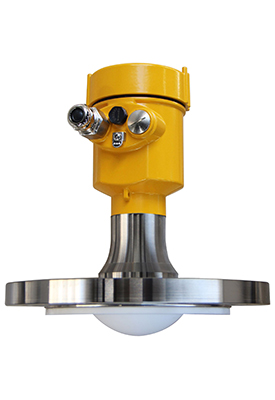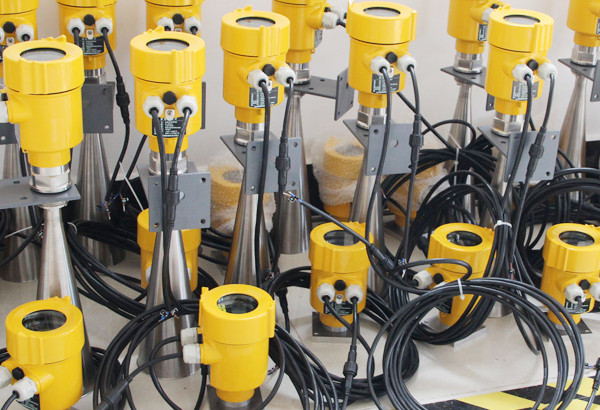As an important raw material, the accurate measurement of coal storage is directly related to the continuity of production and economic benefits.
Therefore, it is particularly important to use high-precision and stable measuring equipment to monitor coal piles in real time. Radar level meter has become the first choice for coal pile measurement due to its non-contact measurement, high accuracy and good environmental adaptability.

As a granular material, coal has physical properties including irregular shapes, different particle size distributions, and humidity and temperature changes that are easily affected by environmental factors. These characteristics make the surface of the coal pile uneven and change over time.
In addition, the coal pile is prone to dust under the action of wind, which affects the on-site working environment and measurement accuracy.
In view of these characteristics of the coal pile, the radar level meter uses the propagation characteristics of electromagnetic waves for measurement. Its working principle is to transmit microwave signals to the surface of the coal pile and receive the reflected signals.
By calculating the time difference or frequency difference between transmission and reception, the distance between the radar antenna and the surface of the coal pile can be determined, and then the height information of the coal pile can be obtained.
Because it uses microwaves, the radar level meter can work stably under dust, steam and various climatic conditions, which is especially important for materials such as coal piles that are easily affected by the environment.

In practical applications, the challenges faced by radar level meters mainly come from the irregularities of the coal pile surface and the changes in dielectric constant. The uneven surface of the coal pile may cause the scattering of microwave signals and affect the quality of the echo.
The change in dielectric constant may be caused by factors such as the humidity, temperature and particle size of the coal, which will directly affect the propagation speed of the microwave and thus the accuracy of the measurement results.
In order to overcome these challenges, modern radar level meters usually use frequency modulated continuous wave (FMCW) technology, which can provide higher measurement accuracy and better anti-interference ability.
At the same time, through multipath suppression technology and advanced signal processing algorithms, the measurement error caused by the irregular surface of the coal pile can be effectively reduced.
In addition, some high-end radar level meters also have a self-calibration function, which can automatically adjust parameters according to actual measurement conditions to ensure long-term stability and reliability.

Radar level meters have shown significant advantages in coal pile measurement. Through in-depth analysis of coal pile characteristics and continuous optimization of radar level meter technology, accurate measurement of coal pile height can be achieved, providing strong technical support for material management in the energy industry.
